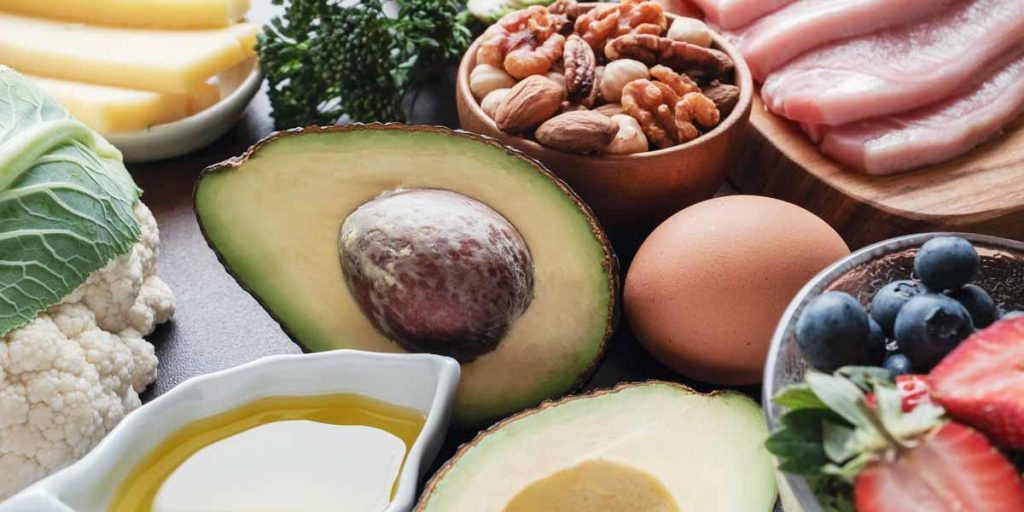Macros for Menopause Weight Loss: A Comprehensive Guide
Are you struggling with menopause weight gain and looking for a sustainable solution? You’re not alone! Menopause brings changes to our bodies, and one of those changes is often weight gain. Fear not, because mastering your macros can help! In this blog, we will discuss the role of macronutrients—carbohydrates, proteins, and fats—in weight loss during menopause, and how you can create a balanced diet to support your goals. Get ready to take control of your menopause weight loss journey with our comprehensive guide on mastering macros!
Table of Contents

What Are Macros?
Macronutrients, or “macros” for short, are the three primary nutrients our bodies require for energy and overall health: carbohydrates, proteins, and fats. These nutrients provide the calories needed for our bodies to function properly and support various physiological processes.
Why Macros Matter During Menopause?
Menopause brings hormonal changes that can affect metabolism, body composition, and energy levels. As a result, weight gain is common during this time. Focusing on a balanced intake of macronutrients can help manage weight and provide the necessary nutrients to support overall health during menopause.
The Macronutrient Breakdown: Carbohydrates, Proteins, and Fats
Protein: Maintain Muscle Mass and Boost Metabolism
Protein is crucial during menopause, as it helps maintain muscle mass and supports an efficient metabolism. Consuming adequate protein can prevent the loss of muscle mass that occurs due to hormonal changes during menopause. Aim for 0.8-1.2 grams of protein per pound of body weight per day, incorporating protein-rich foods like lean meats, fish, poultry, beans, and legumes into your meals and snacks.
Fats: Stay Full and Support Nutrient Absorption
Healthy fats, such as monounsaturated and polyunsaturated fats, play a vital role in hormone production, nutrient absorption, and satiety. Incorporate healthy fats from sources like nuts, seeds, avocados, fatty fish, and olive oil into your diet. Aim to consume 25-30% of your daily calories from healthy fats to support overall health during menopause.
Carbohydrates: Fuel Your Body with Quality Carbs
Carbohydrates are an essential energy source, particularly during menopause when metabolism may slow down. Instead of cutting carbs drastically, focus on consuming high-quality carbohydrates from whole grains, fruits, vegetables, and legumes. These nutrient-dense carbs also provide essential vitamins, minerals, and fiber to support digestive health and prevent blood sugar spikes.
The Importance of Tracking Macros for Menopause Weight Loss
Tracking macros helps ensure you consume the right balance of nutrients to support weight loss goals during menopause. Monitoring your intake of carbohydrates, proteins, and fats can help prevent cravings, overeating, and inadequate nutrition.
How to Track Macros for Menopause Weight Loss
Calculate Your Daily Calorie Needs
Determine your daily calorie needs by using an online calculator or consulting with a healthcare professional. This calculation will account for factors like age, gender, weight, activity level, and overall health.
Find Your Ideal Macronutrient Ratios
Once you know your daily calorie needs, determine the ideal macronutrient ratios for your specific goals and preferences. A registered dietitian or nutritionist can provide personalized guidance on the best macro ratios for your situation.
Use Apps and Websites for Macro Tracking
Use tracking tools like MyFitnessPal, Lose It, or Cronometer to monitor your daily intake of carbohydrates, proteins, and fats. These apps calculate your macros and calories, making it easy to stay on track with your goals.
Measuring and Weighing Food for Accurate Macro Tracking
Accurately measuring and weighing food is essential for tracking macros, as it ensures you consume the correct amounts of carbohydrates, proteins, and fats. Invest in a food scale and measuring tools to help you stay within your recommended macro ranges.
Sample Meal Plan for Menopause Weight Loss
A menopause-focused meal plan should prioritize nutrient-dense, whole foods and be tailored to your individual calorie and macro goals. The sample meal plan provided earlier in this article is an excellent starting point, but adjust as necessary to meet your specific needs and preferences.
Tips for Successful Menopause Weight Loss
Consistency Over Perfection
Determine your daily calorie needs by using an online calculator or consulting with a healthcare professional. This calculation will account for factors like age, gender, weight, activity level, and overall health.
Boost Metabolism with Strength Training and Protein
Once you know your daily calorie needs, determine the ideal macronutrient ratios for your specific goals and preferences. A registered dietitian or nutritionist can provide personalized guidance on the best macro ratios for your situation.
Prioritize Sleep and Stress Management
Sleep and stress can significantly impact weight loss efforts. Aim for 7-9 hours of sleep per night and implement stress management techniques, such as meditation, yoga, or deep breathing exercises, to support your weight loss journey.
Focus on Nutrient-Dense, Whole Foods
Choose nutrient-dense, whole foods over processed and refined options. These foods provide essential vitamins, minerals, and fiber that support overall health and well-being during menopause.
Plan Meals in Advance
Plan your meals ahead of time to save time and prevent overeating. Meal planning helps ensure that you’re meeting your macro goals and reduces the likelihood of making unhealthy food choices.
Set Realistic Goals and Track Progress
Set achievable and realistic weight loss goals for yourself. Track your progress regularly to stay motivated and make adjustments to your plan as needed.
Seek Support
Share your weight loss journey with family, friends, or healthcare professionals. Having a support system can make it easier to stay accountable and motivated throughout your menopause weight loss journey.
The Bottom Line
Tracking macros during menopause is an effective and sustainable approach to weight loss while ensuring adequate nutrition. By focusing on consuming the right amounts of carbohydrates, proteins, and fats, you can maintain a healthy weight and provide essential nutrients for overall health during menopause. Remember to be consistent, prioritize sleep and stress management, and seek support from your loved ones to achieve your weight loss goals.